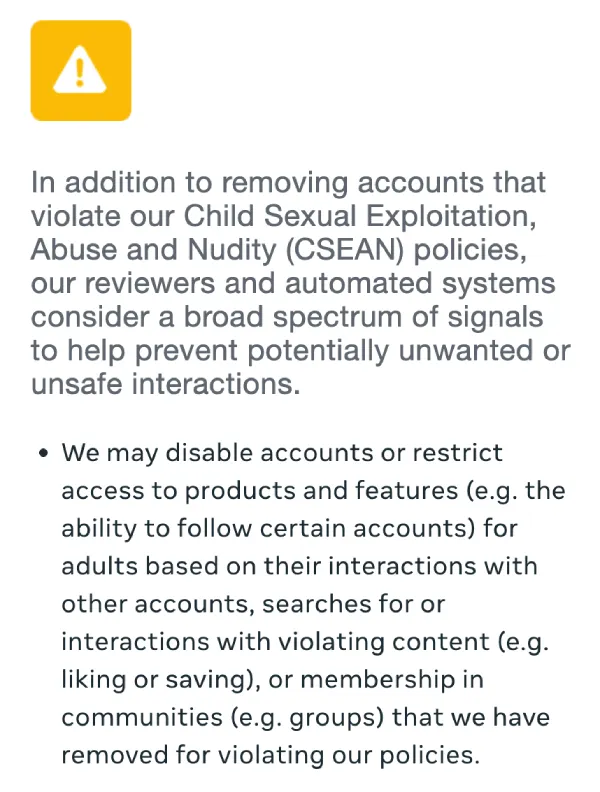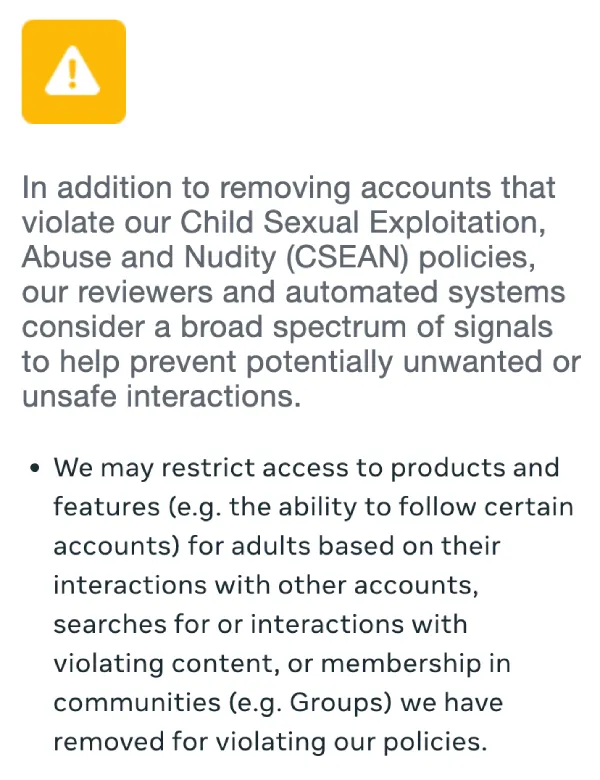Meta Involved in a full Cover Up ! Changing their terms of use after mass suspending user accounts, deleting suspicious overseas log in data & changing suspension reason from CSE to SOC. Meta legal team working OT to cover their tracks & their a**es from mass huge lawsuits.
byu/YamWitty8550 inInstagramDisabledHelp
Meta has quietly updated its child safety policies in what appears to be a significant expansion of its ban authority. The change comes as the company continues dealing with fallout from a massive Instagram and Facebook ban wave that has wrongfully suspended thousands of users since late May.
I discovered through Wayback Machine records that Meta modified its Community Standards enforcement policies sometime between July 9 and July 21. The timing raises serious questions about whether the company is trying to retroactively justify the widespread account suspensions that have sparked international outcry.
Previously, Meta said it could only “restrict access to products and features” for adults who interacted with violating content. Now, the updated language explicitly states the company “may disable accounts” for these same interactions.


The new wording represents a dramatic escalation in potential penalties. Where users once faced limited restrictions like being unable to follow certain accounts, they now risk complete account termination for actions as simple as liking a post that Meta’s AI systems later flag as problematic.
Users affected by the ban wave are calling this a cover-up attempt. Many also noticed their suspension reasons mysteriously changed from “Child Sexual Exploitation” to the broader “Sexualization of Children” category in recent weeks, as I highlighted previously. The policy update seems designed to provide legal backing for these mass suspensions after the fact.
Users are documenting everything, taking screenshots of policy changes and suspension notices as potential evidence for legal action. Many report that suspicious overseas login data that initially appeared in their account downloads has now mysteriously disappeared from newer data exports.
What makes this particularly troubling is the vague nature of Meta’s enforcement criteria. The policy mentions banning users for “interactions with violating content” but provides no clear definition of what constitutes such content. This might give Meta enormous discretion to justify suspensions retroactively.
That being said, Meta has indeed been documenting the policy changes, so while some users are sounding the alarm over the changed policy, claiming that Meta is hiding its tracks, you can currently view the previous policy in the 27 Dec 2024 changelog on the page. At least that’s the case at the time of this writing.
But that doesn’t change the fact that this policy change represents a concerning new chapter. Meta is essentially saying that any past interaction with content its AI systems now flag as problematic can justify permanent account suspension.
If liking or saving a post that Meta later deems inappropriate can result in account termination, users face an impossible situation. There’s no way to predict what content might be retroactively classified as violating, making every interaction potentially dangerous.
Just a few days ago, I also reported on how Meta recently announced that it removed millions of Facebook profiles to combat “spammy content.” It’s highly likely that this move might have also resulted in many false flag removals, which could explain the sudden uptick in reports about accounts being disabled, despite not violating any guidelines.
The worst part of it all is that despite mainstream media outlets starting to shed light on the matter, Meta hasn’t come out with any official statement. So until Meta is willing to explain what actually went wrong and what it’s doing to solve the problem, we’re pretty much stuck in the same loop with new rumors and speculations popping up weekly.
TechIssuesToday primarily focuses on publishing 'breaking' or 'exclusive' tech news. This means, we are usually the first news website on the whole Internet to highlight the topics we cover daily. So far, our stories have been picked up by many mainstream technology publications like The Verge, Macrumors, Forbes, etc. To know more, head here.


